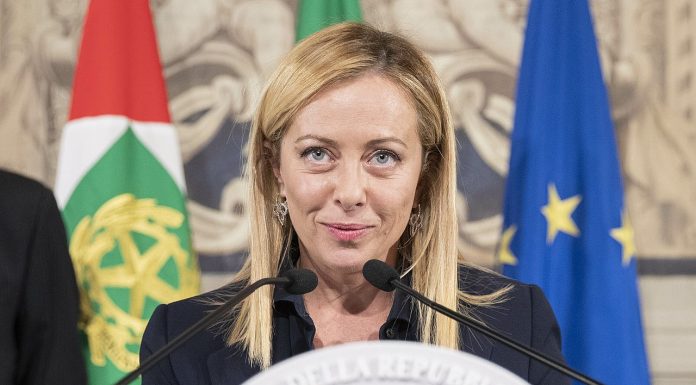Diego Sánchez de la Cruz is the CEO of Foro Regulación Inteligente (FRI), a Spanish think tank, based in Madrid. He lectures at UCJC and IE University in Madrid and is a frequent guest in Spanish media. Selected by Crédito y Caución as one of Spain’s most influential economic analysts, Sánchez de la Cruz is also an associate researcher at Instituto de Estudios Económicos, the study center of CEOE, Spain’s employers federation. He is the author of three best-selling books and is a key voice supporting economic freedom and pro-market reform in Spain.
He’s interviewed exclusively for Brussels Report by Lorenzo Montanari (@lorenzmontanari), VP International Affairs for Americans for Tax Reform Foundation and Executive Director of the Property Rights Alliance (PRA), as the eighth interview in a series of prominent European supporters of free market economics:
Lorenzo Montanari: In terms of national economic reform, what’s the biggest challenge in Spain?
Diego Sánchez de la Cruz: Spain has an unemployment rate which is twice as high as the European average. That means that we have 3 million people that are not active on the labour market, which is 1.5 million more than what’s the case in the countries around us.
The studies we have carried out at the Smart Regulation Forum show that achieving an unemployment rate of 6% would turn the Spanish public deficit into a budget surplus and would also put an end to the Social Security deficit. Therefore, Spain’s priority needs to be employment, and economic policies must focus on making the labour market more flexible, in line with what former Spanish PM Mariano Rajoy did with his 2012 reform. Unfortunately, the Spanish government, composed of PSOE (socialists) and Podemos (communists)is moving in the opposite direction and continues to make the labour market more rigid instead.
Importante este tema. Lean esto que publiqué https://t.co/y2l17LE9p5 y repasen la última intervención parlamentaria de @rubenmansolivar sobre este asunto. Crecimiento dopado, de mala calidad e insostenible. https://t.co/5MMBSzRrw5
— Diego de la Cruz (@diegodelacruz) February 21, 2022
Lorenzo Montanari: What do you think should be the priority of the government of Spain in terms of EU policy?
Diego Sánchez de la Cruz: In terms of international relations, Spain should take a leadership position in relation to Latin America, where democracy and fundamental freedoms are under threat in many countries. In terms of economic governance, Spain should return to the role it played in the second half of the 1990s and the beginning of the 21st century, when it emerged as a voice for budgetary stability and market reforms.
Lorenzo Montanari: Where do you think the European Union offers the most value for Spain and where is it failing to provide value?
Diego Sánchez de la Cruz: If one reviews the results of Spain in the Index of Economic Freedom, one can see that belonging to the EU benefits us in aspects such as trade openness. Monetary stability is greater today with the euro than in the past with the peseta, despite the expansionary and unorthodox policies of the ECB. As for budgetary stability, Brussels should be stricter when it comes to the deficits and public debt that Spain is taking on.
Lastly, I am concerned about the Next Gen EU funds, because in practice, they are used to boost Spanish government spending, something which will become structural; these resources should have never been mobilized.
Lorenzo Montanari: Can you tell us more about your think tank, Foro Regulación Inteligente? And what’s your most recent research project?
Diego Sánchez de la Cruz: FRI was founded in 2017. It is a think tank specialized in regulatory and tax matters. We have participated in the promotion of very important reforms at the national level, such as the Spanish law that simplifies the procedures for creating companies.
We have also been involved in the development of economic policies in different regions, since Spain is a federal country where the autonomous communities have a lot of power. For example, we have contributed to promoting an ambitious deregulation agenda in Madrid and Galicia and we are also working to make the real estate market more flexible in Madrid and Malaga.
Lorenzo Montanari: What is the current status of the center-right in Spain? Is there any future for a “fusionistic” approach between PP and Vox?
Diego Sánchez de la Cruz: Between 1975 to 1990, the Spanish center-right remained divided. The Popular Party project brought together centrists, conservatives, and liberals, under the coordination of Manuel Fraga and the leadership of José María Aznar. This formula was successful for twenty-five years, making the PP the party with the most representatives at the national, regional and local levels and putting an end to the political hegemony that the PSOE (socialists) had achieved.
However, under the leadership of Mariano Rajoy, a new fragmentation of the center-right took place. In addition to Vox, there was the appearance of Ciudadanos (centrists), which since 2020 has become a small party and seems to be on the way to extinction, but between 2015 and 2019 it had almost 60 seats and more than 15% of the votes.
Vox is growing a lot. In the regional elections that have been held in Madrid in 2021 and Castilla y León in 2022, it is clear that for every 3 to 4 deputies obtained by the PP, Vox obtains 1 deputy. Therefore, both parties should find methods for collaboration that are clear and simple to understand, which is proving difficult, as witnessed by the local governance of Madrid, where their agreements have imploded, or Castilla y León, where there is no clarity about the post-electoral scenario in spite of the fact that both parties earned a large majority.
Spain, Sociométrica poll:
PSOE-S&D: 26%
VOX-ECR: 21% (+3)
PP-EPP: 20% (-4)
UP-LEFT|G/EFA: 13% (+1)
Cs-RE: 4%
ERC-G/EFA: 3%
MP-G/EFA: 3%
Junts-NI: 2%
PNV-RE: 2% (+1)
…+/- vs. 20-30 December 2021
Fieldwork: 18-19 February 2022
Sample size: 1,000
➤ https://t.co/uqtqAgTaHO pic.twitter.com/7QyHJvZL3e— Europe Elects (@EuropeElects) February 20, 2022
Lorenzo Montanari: What does “Hispanidad” mean in the XXIth Century? Which policies should the EU and Spain adopt in Latin American to expand freedom and open markets, and to counter dictatorships like Nicaragua, Cuba and Venezuela?
Diego Sánchez de la Cruz: “Hispanidad» is the historical, cultural, religious, and economic ties… that unite Spain with America. The bond is real and the recognition is mutual. However, the position of the Spanish government, composed of PSOE (socialist) and Podemos (communist), in relation to what is happening in Latin America is very unfortunate, since the anti-democratic and oppressive leadership of the Bolivarian tyrants that have captured power is repeatedly being validated.
In countries like the ones you mention. Spanish policy in this regard should be diametrically opposed. We need to be a pro-freedom voice in America.
Lorenzo Montanari: Recently, you published a very interesting book, “Liberalismo a la Madrilena,” which describes the rise of a new political wave within the Spanish center-right, starting with Madrid’s economic boom, also fostered by Isabel Díaz Ayuso, president of the Community of Madrid.
Diego Sánchez de la Cruz: The book explains why Madrid has become the capital of capitalism in Southern Europe. For two decades, the region of Madrid has promoted the development of an open society, continued reduction of taxes, deregulation and simplification, the participation of the private sector in health and education, etc. In addition, in the midst of the COVID-19 pandemic, Madrid has been Europe’s most open capital, refusing to enact lockdown after lockdown, and opting for a successful adaptation strategy.

La reforma laboral nace fruto del pasteleo político, no pensando en el empleo y la empresa, que necesitan ayuda, flexibilidad y menos impuestos.
Además, nace deslegitimada, sin consensos y desoyendo a todos los diputados en el propio Congreso. pic.twitter.com/vwKB7I6dGd
— Isabel Díaz Ayuso (@IdiazAyuso) February 4, 2022
Lorenzo Montanari: Which book would you recommend to European center-right activist?
Diego Sánchez de la Cruz: Go back to basics, and read Milton Friedman‘s “Free to Choose“.
Please also read the first, second, third, fourth, fifth, sixth and seventh interview of Brussels Report’s interview series of prominent European supporters of free market economics.

![Foto CV Diego Sanchez de la Cruz El Mundo Copyright Antonio Heredia 2 (LARGE)[55]](https://www.brusselsreport.eu/wp-content/uploads/2022/02/Foto-CV-Diego-Sanchez-de-la-Cruz-El-Mundo-Copyright-Antonio-Heredia-2-LARGE55-696x464.jpeg)











